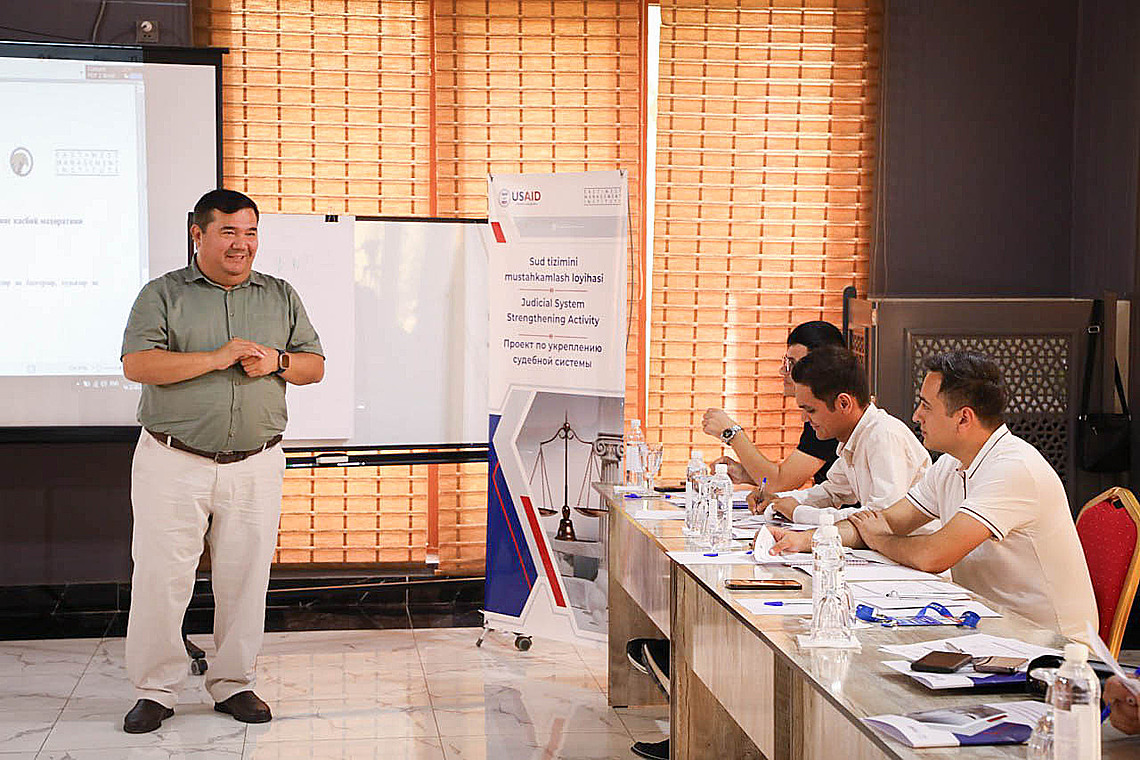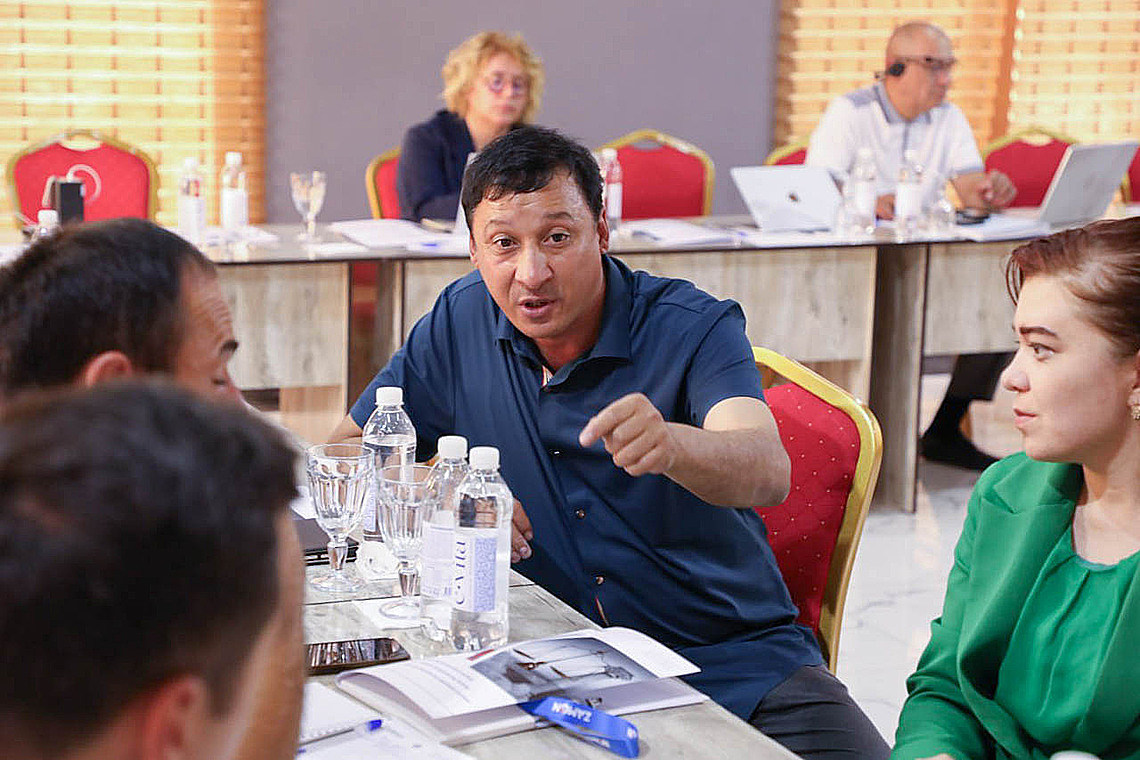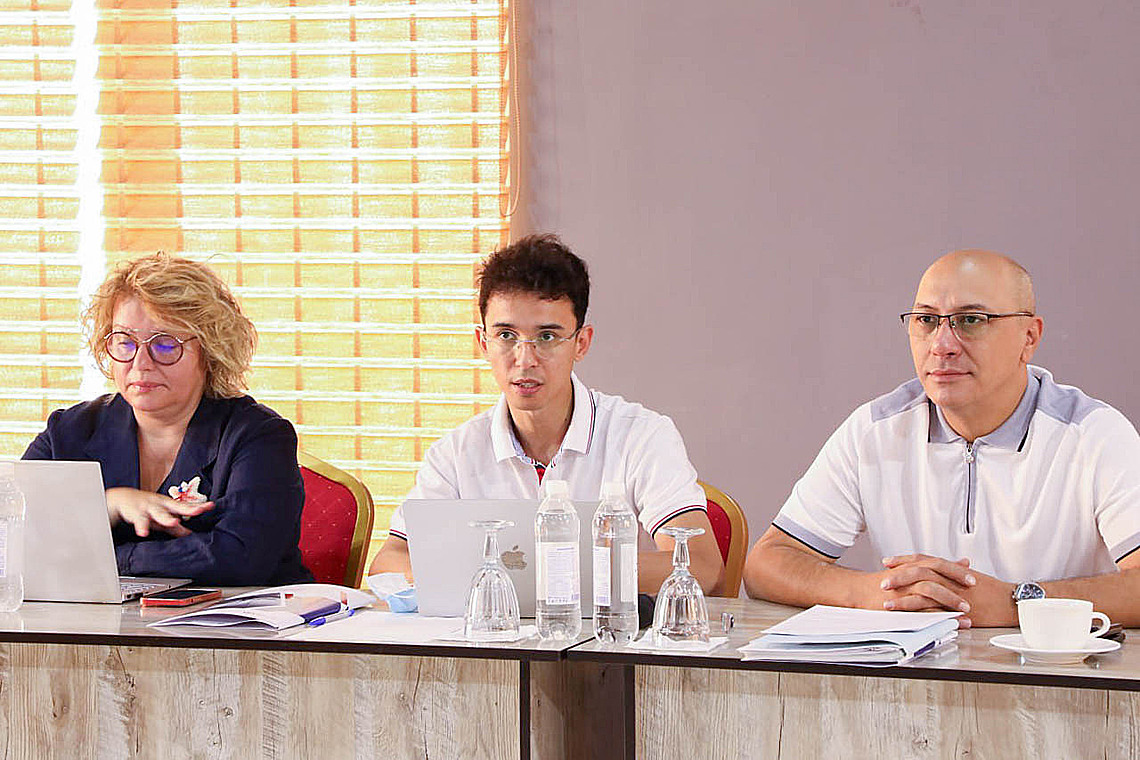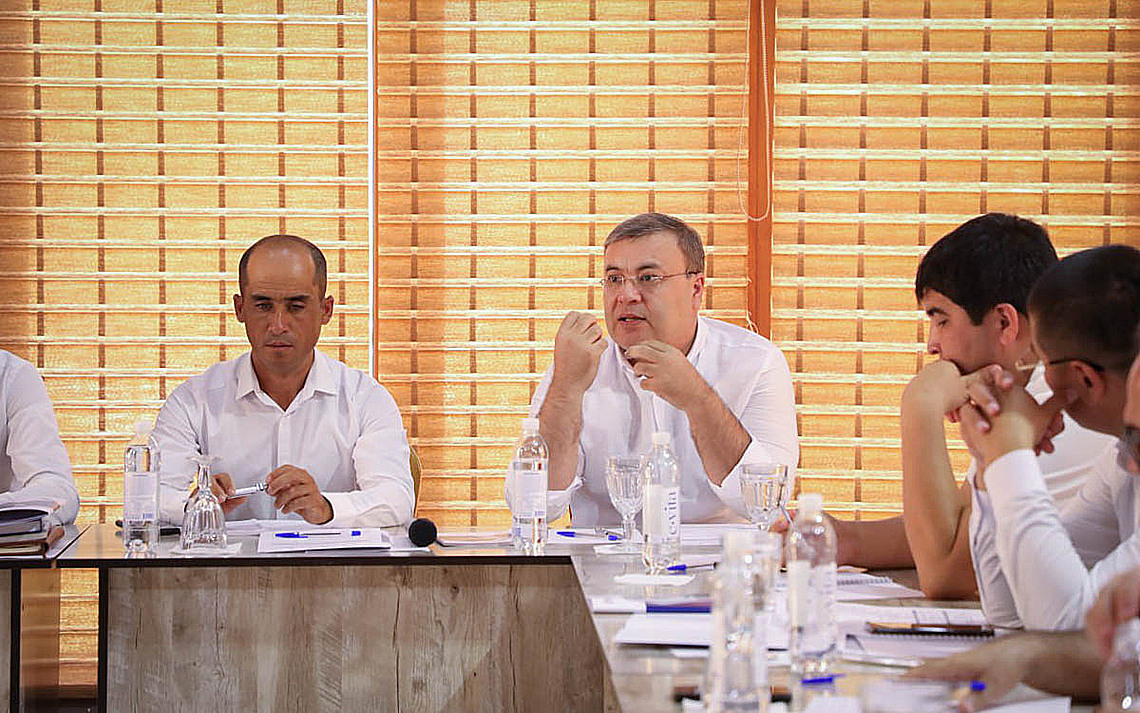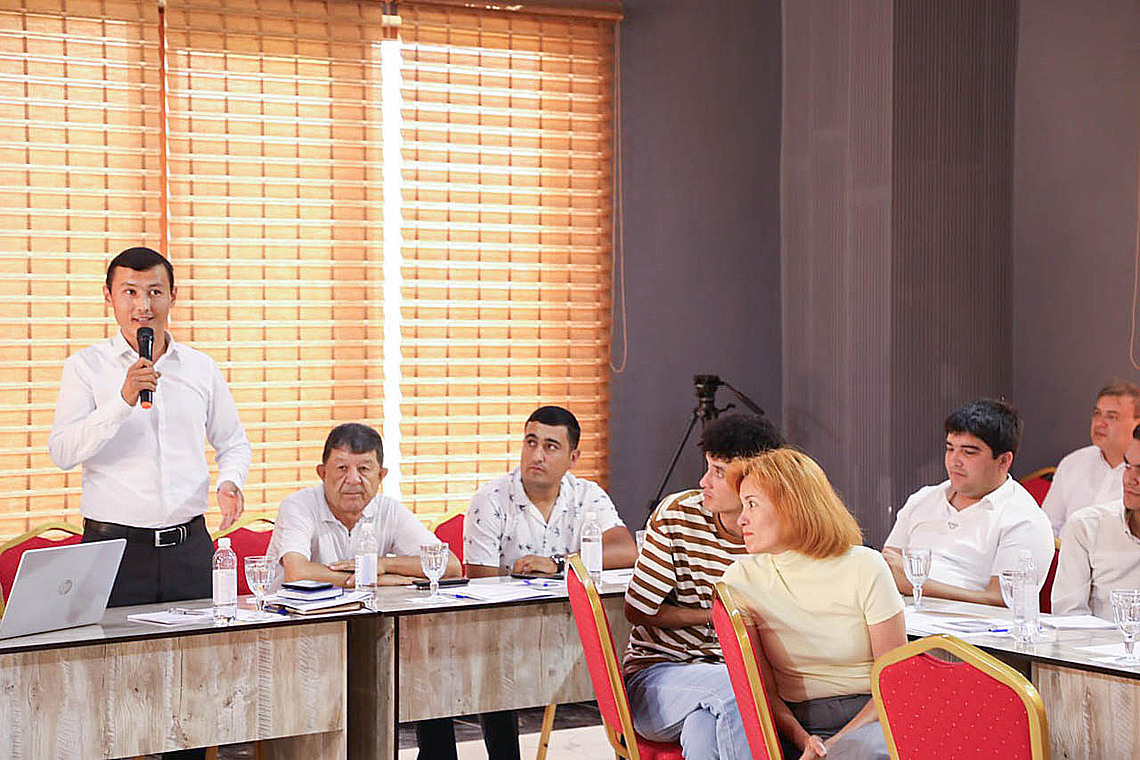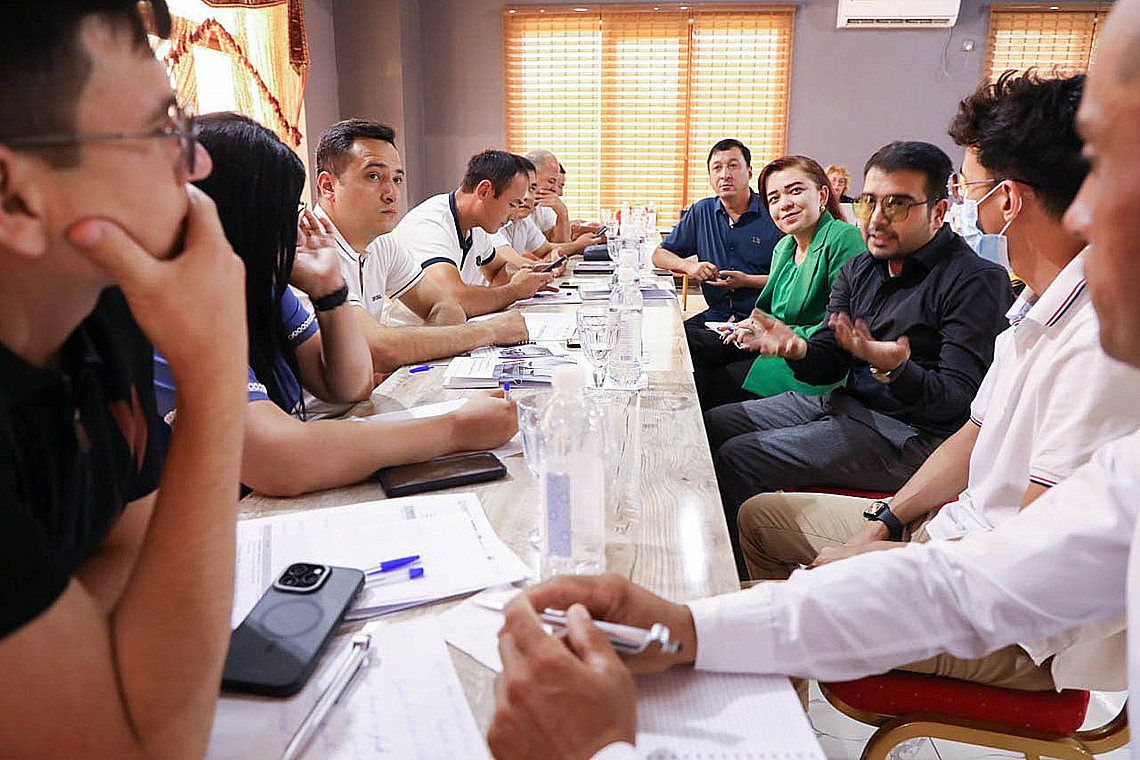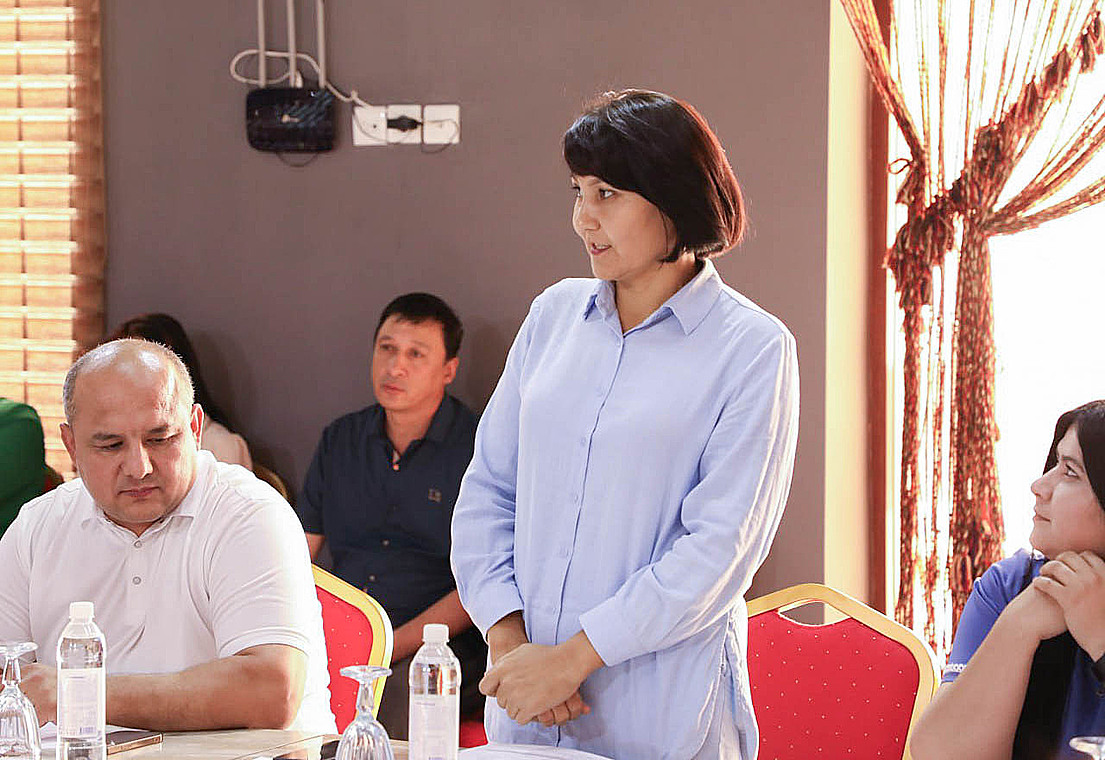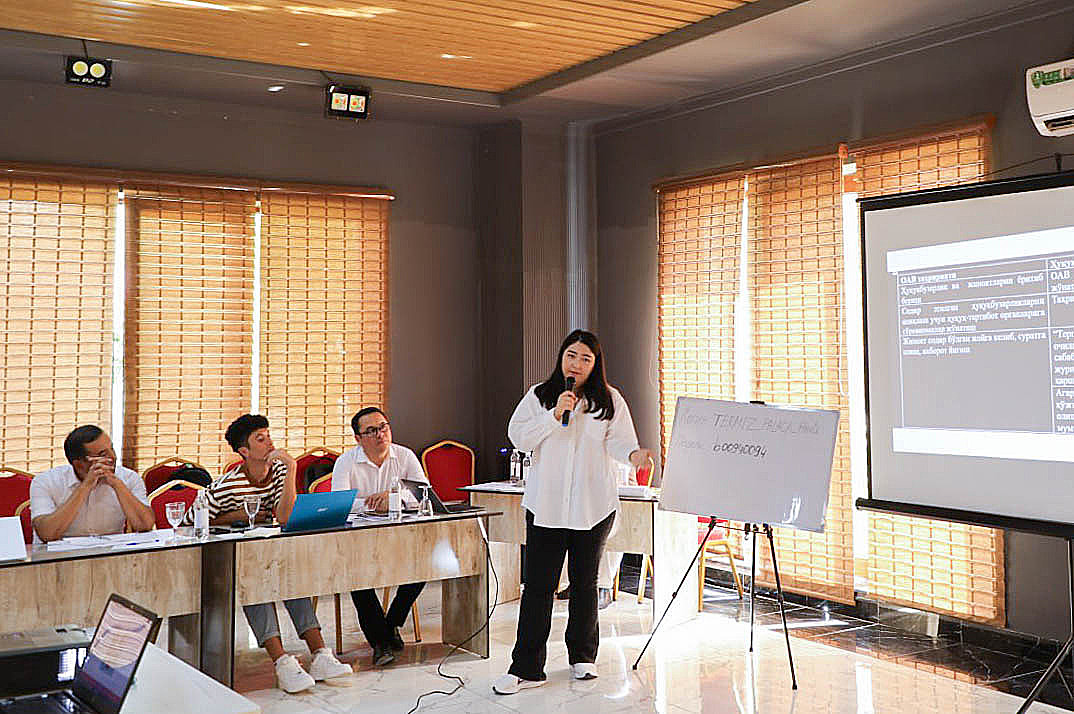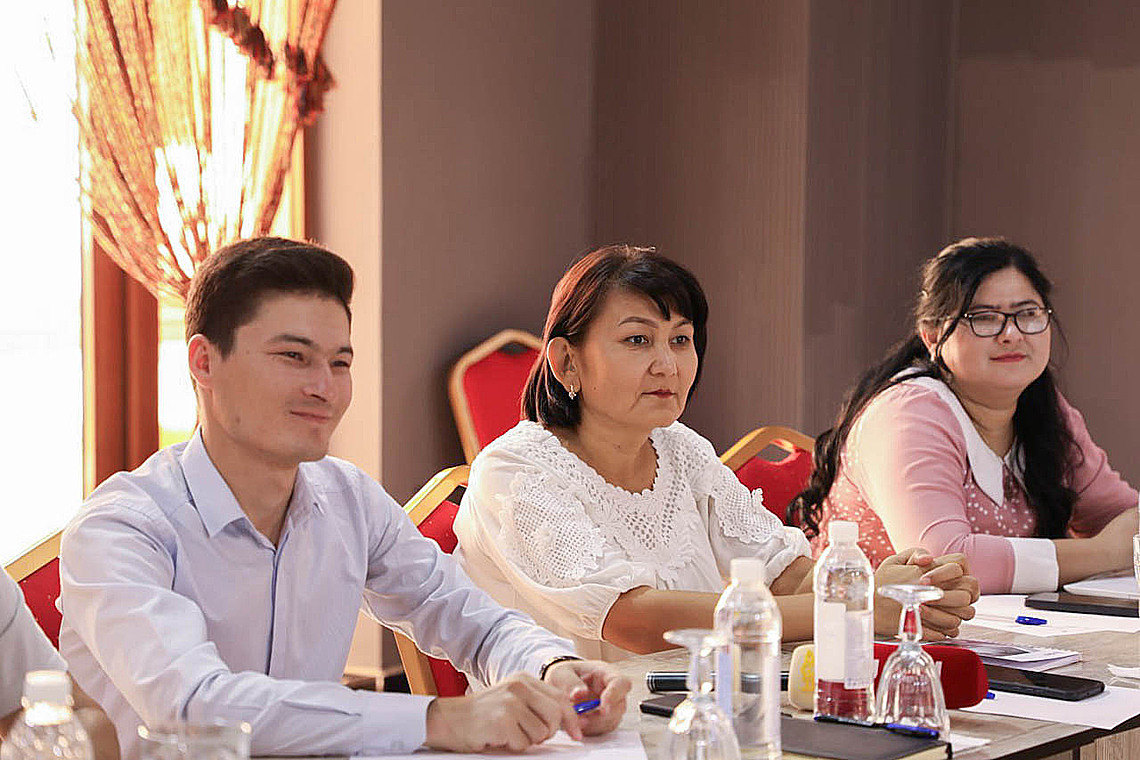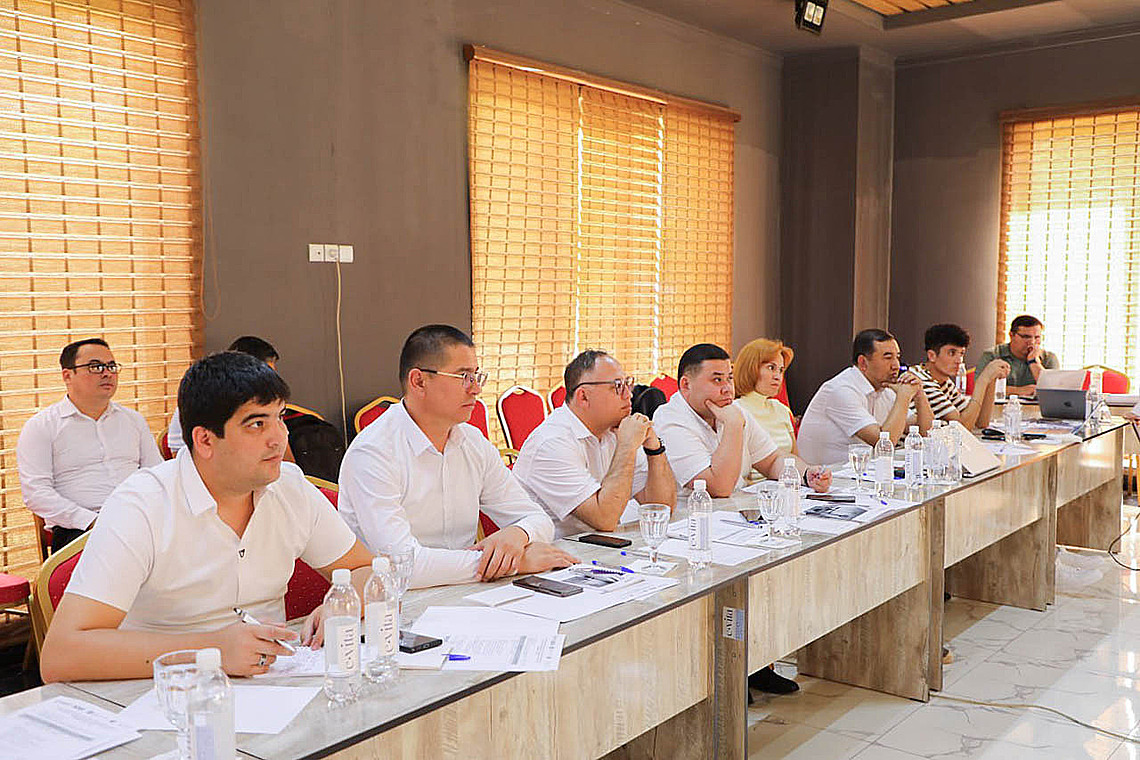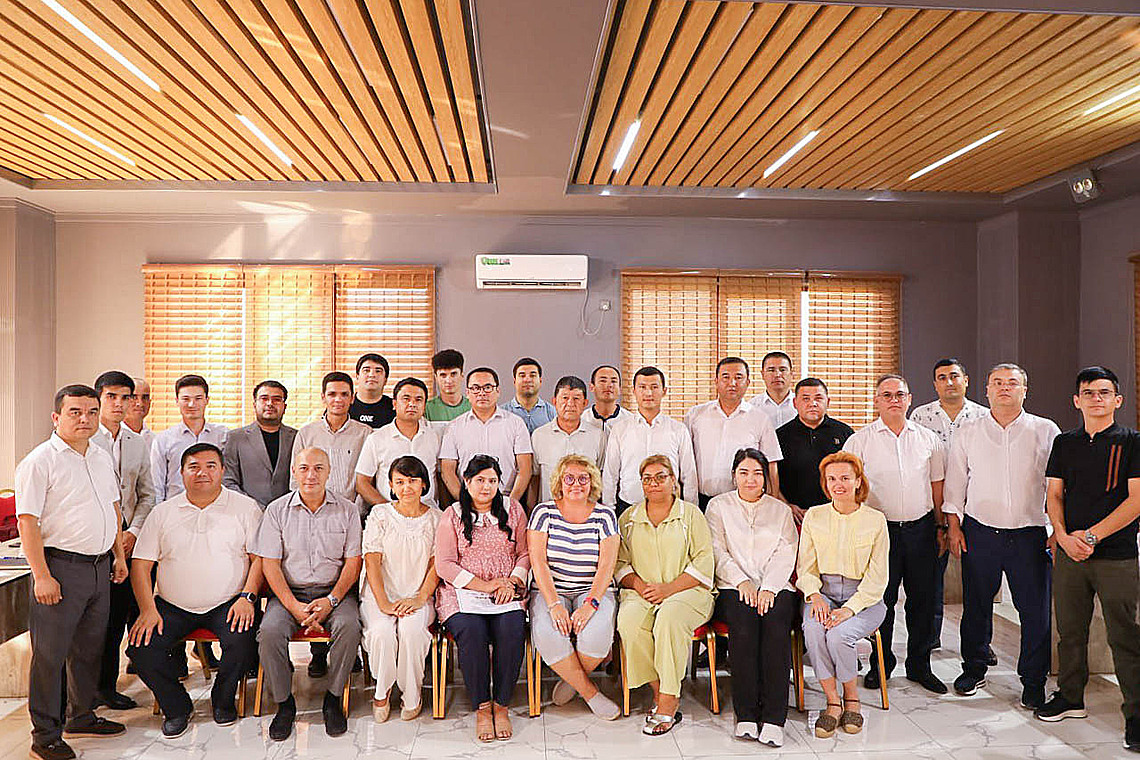Workshop for Journalists on Court Reporting and Judicial Transparency Launches in Termez

On 22-23 August 2024, a training session for media representatives from the Kashkadarya and Surkhandarya regions was held in Termez, focusing on court reporting. Participants discussed the interaction between courts and the media, ensuring witness protection, upholding the presumption of innocence in court coverage, and other related topics.
The event was organised as part of the "Strengthening the Judicial System" project, implemented by the Supreme Court, the United States Agency for International Development (USAID), and the East-West Management Institute NGO, in partnership with the Public Foundation for Support and Development of National Mass Media and the Agency for Information and Mass Communications under the Presidential Administration.
The primary aim of the training was to enhance journalists' and bloggers' knowledge and skills in covering court activities, as well as to exchange ideas on addressing issues that arise when preparing materials on this subject.
"The fundamental principle of both the judicial system and the media is ensuring fairness. It's crucial that through such training sessions, both sides can better understand the legal aspects and ethical rules they must adhere to in their professional activities. This is essential for building trust between courts and journalists," said Jakhongir Azimov, Director of the Mass Media Foundation.
The training explored what information journalists are entitled to access when covering court proceedings and the limits of such access, ethical considerations when creating informational materials on the subject, and other nuances of interaction between the judiciary and the media.
"The Supreme Court leadership highly values cooperation with the media. Our sole requirement is that materials published in newspapers, magazines, online publications, and other sources be objective and written in compliance with legal norms. They should not contain speculation or subjective assessments, as this could form incorrect public opinions and harm the entire judicial process," noted Aziz Abidov, Head of the Supreme Court Press Service.
The event also covered the legal foundations of court-media interactions, freedom of speech and privacy issues, and practical aspects of reporting on high-profile court cases. Attention was given to modern content visualisation methods and gender issues in judicial journalism.
In her welcoming speech, Sonja Prostran, Director of the East-West Management Institute's "Strengthening the Judicial System" project, noted that improving media literacy among judges and media representatives not only promotes greater court transparency but also leads to better coverage of their activities in the media.
"...This allows for the development of an effective system of media interaction that takes into account current legislation, improving the quality of informational materials about the judicial system with a focus on revealing the nature of court proceedings. It's also important to organise feedback from journalists and the public on published materials about court activities, including those of a critical nature," she added.
A separate section of the training was devoted to practical exercises in the form of simulation games based on examples of real court hearings covered in the media.
